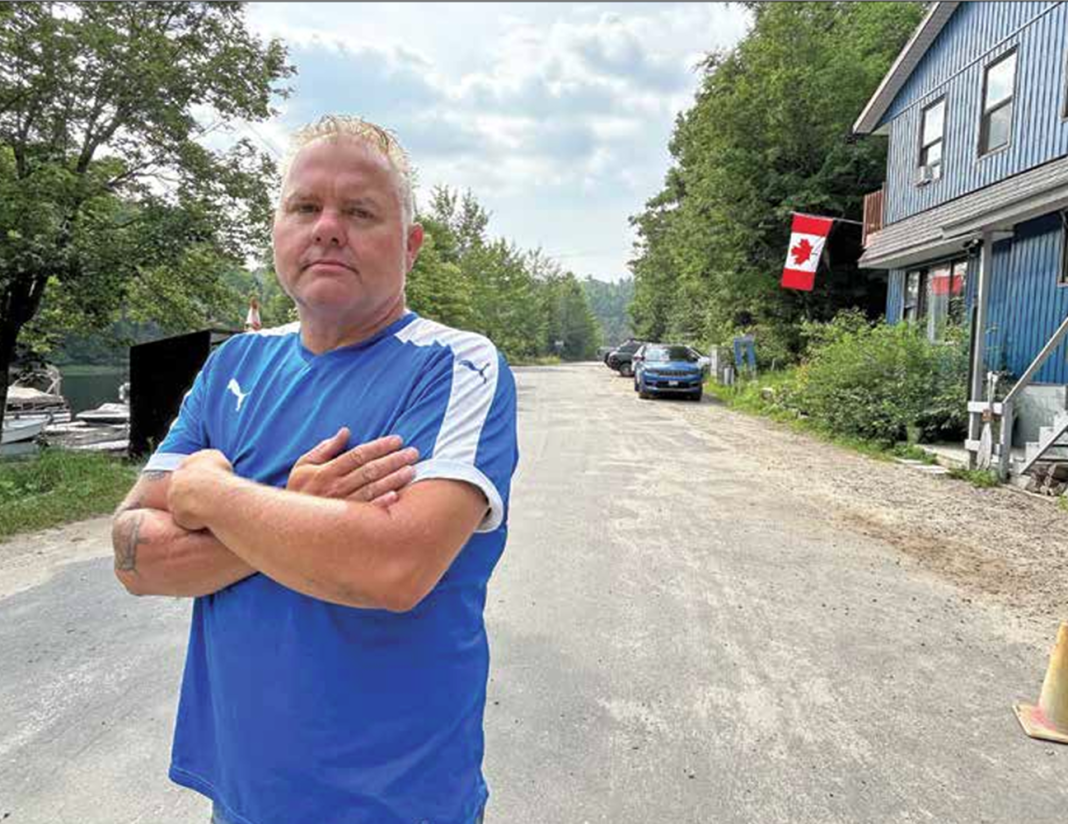Algonquin Highlands council has committed to working with Millington’s Big Hawk Lake Marina to address safety concerns along the busiest stretch of Big Hawk Lake Road.
The marina’s general manager, Chris Ewles, told council during a July 17 meeting that he’s worked there for 18 months and has witnessed many near-misses involving vehicles and pedestrians brought on by speeding and dangerous driving.
“The marina is often seriously congested with canoeists, cottagers, staff and visitors… busloads of children from summer camps are frequent… making navigating the area a challenge,” he said, noting traffic from the nearby public beach and boat launch, cottage roads and parking areas exacerbate problems.
Ewles said the situation is becoming so dire he’s worried about staff safety.
“As employers, we have a duty and responsibility to provide a safe work environment… we cannot accomplish this without the township’s support,” Ewles noted.
He posed six solutions to council – reduce the posted speed limit from 50 km/h; establish a community safety zone; install speed bumps; purchase speed enforcement cameras to put in the area; install a stop sign; or a pedestrian crossing.
“I do not feel reducing the speed alone will stop the problem… also consider at least one of the other suggestions as we cannot rely on physical OPP enforcement in this isolated area,” Ewles said.
Mayor Liz Danielsen said the road is very congested during the summer, admitting the township has some responsibility to rectify the issue. As does the marina, which is owned by Algonquin Highlands coun. Sabrina Richards, who recused herself from the discussion. “
I’m looking at this as something we jointly need to look at… certainly, we can’t solve all the problems of all the businesses in Algonquin Highlands [alone],” the mayor said. “There’s an aspect of buyers’ beware. When you buy a marina that is on the road, there’s bound to be problems.”
Ewles said the marina is “absolutely eager” to help the township solve the issue.
CAO Angie Bird suggested installing one of the township’s digital speed signs on the road immediately and direct public works staff to investigate other solutions.
Danielsen warned that, although a serious matter, the issue won’t be resolved quickly. She said staff should take their time to properly consider all options and the costs involved. Bird said a report could be prepared for a meeting in August or September.
“Speed bumps, I’d like to hear from public works about [their effectiveness], then from bylaw on crosswalks, the implications of putting in a stop sign,” Danielsen said. “If there are any other ways of reducing the congestion, I’d look to any and all suggestions on how to go about that.”
Land dispute
Danielsen said she’s also waiting on results of a land survey, which will clearly outline where the marina’s property ends and the township’s begins. The mayor said this had been in dispute for some time, suggesting it would be in the owner’s best interest to pay for and complete the work.
“It doesn’t fix the challenge with speeding and danger… but I have heard the road is on our property, and we don’t know that. A survey will help us guide what we need to do to resolve this problem,” Danielsen said. “There’s definitely a willingness here for us to do something… but without a clear survey showing clear ownership, it really is a challenge for all of us.”
In a follow-up interview, Ewles told The Highlander he’s not sure what such a survey would solve – saying he hasn’t yet initiated one.
“Where we are parking and working on boats is 100 per cent our property, not township. It’s just a matter of whether the road in its entirety is also [our property]. The two situations don’t have anything to do with each other. For one, if we got a new survey, if we established the fact that [the road] is on our land, that doesn’t negate the township’s rights to have the road [there], it doesn’t negate their right to establish whether we put speed bumps down. There’s no advantage to us doing [a survey].”
He suggested if the township wants clarification, then it should pay for the work.
“Citizens and businesses, generally, aren’t expected to foot the bill for these things. If the [township] wants a survey, then it is well within its rights to order one,” Ewles said.





